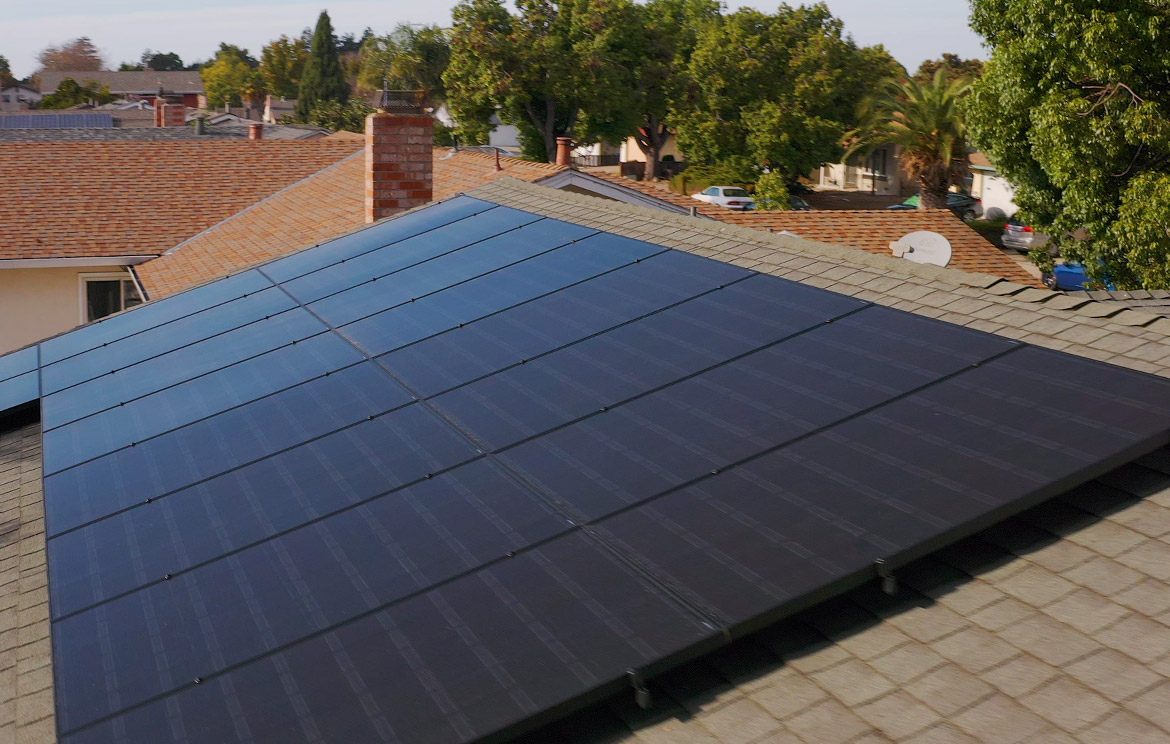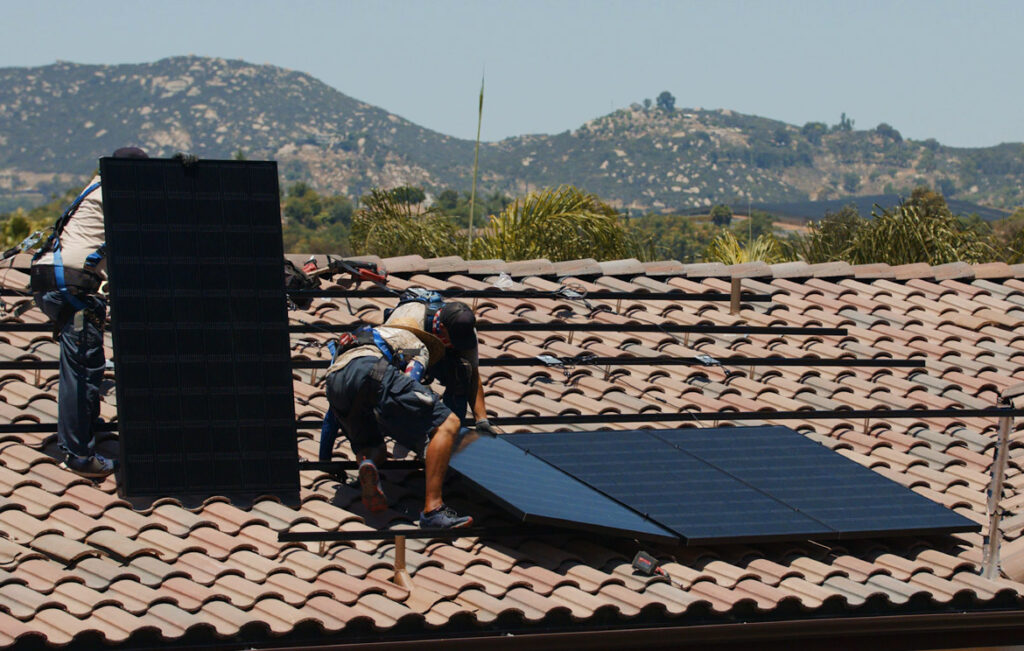




Going solar is not just a popular trend — as of 2020, California is requiring most new home builds to include solar panels (also called PV panels). Solar creates jobs, uses clean energy, and saves homeowners big time on their long-term costs. Semper Solaris is also inviting veterans to become a part of our workforce — a whopping 11.1% of people working in solar are veterans!
But how much are solar panels really worth to homeowners who will have to install their own systems after they move in? As it turns out, quite a lot! We’ll look into finding out how installing PV panels on your home will not only increase your property value, but pay for itself by way of monthly energy savings and additional income.
The addition of solar panels tends to add significant value to a home. At least one study from the Lawrence Berkeley National Lab (LBL) shows that you don’t even have to live in a bright southwestern state to reap financial rewards from solar panels. In California, homeowners will see about a $4 increase for every watt of solar power installed, but homes in other states still see a $3/watt increase in value on average.
To put it another way, a homeowner in California can instantly increase their home equity by $20,000 by putting in 5,000 watts of solar power. You may also increase the value of your home by leasing a solar panel system rather than buying, though not all buyers will want to take on a lease responsibility.
But does this value really last? If you’re in your forever home it’s normal to be concerned that the immediate value of your solar panels will wear off only to be replaced by high maintenance costs, or that within a few years your solar panels won’t harness the same amount of energy.
The news is good in this department, too. Over the life of your homeownership, EnergySage estimates that you can save about $20,000 over the course of 20 years with just energy savings alone. Combined that will the surge in your home’s value, and you can realize a big return even if you don’t sell your home soon while the PV panels are brand new.
But, how long will your solar panels last? If you live in your home for 25 years, should you expect them to go kaput? While the average warranty on a solar panel is 20 years -- that doesn’t mean their life expectancy is exactly two decades. According to a meta-analysis of solar studies conducted by The National Renewable Energy Laboratory, solar panels may be effective for far longer than previously thought.
Most estimates of PV panels predicted that after 20 years, solar panels would still produce 80% of the energy that they did in the beginning. What the analysis by NREL found was that this figure is wrong -- which is actually promising for homeowners. PV panels have been performing well beyond expectations! In fact, the degradation rate for PV panels is just 0.4% per year for panels manufactured after 2000 (and only 0.5% for older panels) and not the 1% per year that had been assumed. What that means is that after 20 years, you can expect your solar panels to operate at 92% of the original power.
The improved degradation rate figure benefits you in a few ways. First, it increases the value for you as a long-term homeowner. You will continue to enjoy lower utility costs for many years. Slow degradation also means that when you sell your home you can promise the future owner -- in good conscience -- that the PV panels will continue to yield financial benefit.

The value of your PV panels lies not just in an increase in home value and reduced utility bills, but also in their potential for earning you a monthly check from your energy company. If you’re in one of the 40 states that allow net metering, you could earn a monthly check by sending your unused energy credits back to the utility company. How does this work exactly?
Net metering payments have no expiration period. Meaning an energy company won’t stop buying back your energy units once the PV panels reach a certain age or once you’ve maxed out on a finite number of kWh. Even after a few years, you can continue to take advantage of net metering so long as it remains legal in your area.
If you decide you don’t want to keep your PV panels you can sell them so long as you own the panels and are not leasing. Just as if you were selling a used appliance or hot water heater, you will likely sell the panels at a reduced cost.
Some companies specialize in purchasing used PV panels, or you can advertise your panels and accept the best honor. Their worth will depend on how much power they continue to generate and their general condition. Keeping up with regular maintenance, such as proper cleaning that avoids scratching the panels while removing smog residue or other dirt.
Deciding whether solar panels are a good investment for your home depends on myriad factors. They are typically a good financial decision, and they allow you to reap the benefits of energy independence. As you weight whether to get PV panels installed at home, here are some things to consider:
How much are solar panels worth in the long haul? Given their potential to improve your home’s resale value and the ability to slash your energy costs, they can be worth quite a lot. Aside from their financial benefit, solar panels are also worth a lot in regards to improving your way of life. Installing PV panels at home is an investment that frees you from dependence on fossil fuels and reduces your negative footprint on the environment. You’re also helping to create jobs in one of the most promising energy markets in the world!
If you’re ready to get serious about adding solar panels to your home, it’s time to schedule a free energy analysis with Semper Solaris! There’s no pressure and we’ll never send you any spam. Contact us today for more information.